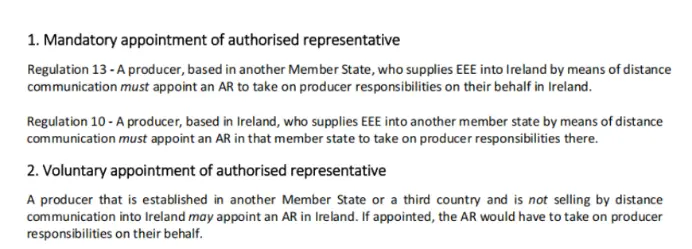
Is Prop 65 Warning Required?
Recently, many friends who sell products in the U.S. market have told us that their products do not have a California Proposition 65 report. They also mentioned hearing that Proposition 65 is not mandatory. But what is the actual situation?

What is California Proposition 65?
California Proposition 65 refers to the Safe Drinking Water and Toxic Enforcement Act of 1986, officially enacted in November 1986. It is a California law designed to increase public awareness of toxic cheMICals that may be encounteRED in daily life. It is commonly known as CA65, CP65, or simply Prop 65.
The law requires manufacturers to provide warnings to California consumerswhen their products expose individuals to chemicals known to cause cancer, birth defects, or other reproductive harm. These chemicals may be present in products sold in California, in homes or workplaces, or released into the environment. By mandating such warnings, the law allows consumers to make informed choices about the products they use and the chemicals they may be exposed to.
In addition, Proposition 65 prohibits businesses from knowingly discharging listed chemicals into sources of drinking water.
Proposition 65 became law in November 1986 after being approved by California voters with a 63% to 37%majority.
What Types of Chemicals Are on the Proposition 65 List?
The list includes a broad range of naturally occurring and synthetic chemicals, such as:
- Pesticides
- Common household products
- Food and drugs
- Additives or ingredients in dyes and solvents
These listed chemicals may also be used in manufacturing or construction, or may occur as byproducts of chemical processes.
---
What Is a Proposition 65 Warning Label?
A Proposition 65 warning label indicates that a business knows or believesthat it is exposing individuals to one or more chemicals on the official list.
Under the law, a warning must be providedfor exposure to listed chemicals unlessthe exposure level is so low that it poses no significant risk of canceror is significantly below levels observed to cause birth defects or other reproductive harm.
Geographic Scope of Proposition 65
All products sold in the state of Californiaare subject to Proposition 65 testing and labeling requirements.
Who Enforces Proposition 65?
The Office of Environmental Health Hazard Assessment (OEHHA)administers the Proposition 65 program.
OEHHA is part of the California Environmental Protection Agency (CalEPA)and is responsible for:
- Determining whether chemicals meet the scientific and legal criteria for inclusion on the Prop 65 list
- Implementing and enforcing regULations related to Prop 65 warnings and other requirements
When Is a Warning Required?
A business must provide a Proposition 65 warning when it knows or has reason to knowthat any person may be exposed to a chemical identified as hazardous under the law.
In such cases, a warning label must be affixed to the product or otherwise provided to comply with Proposition 65 requirements.
Email:hello@jjrlab.com
Write your message here and send it to us
 LFGB Test Requirements for Food Contact Materials
LFGB Test Requirements for Food Contact Materials
 Irish Battery Act Requires an Authorised Represent
Irish Battery Act Requires an Authorised Represent
 Swedish Battery Act Requires an Authorised Represe
Swedish Battery Act Requires an Authorised Represe
 Amazon TIC Provider
Amazon TIC Provider
 Amazon Battery and Charger Requirements
Amazon Battery and Charger Requirements
 Amazon Japan METI A Domestic Administrator Service
Amazon Japan METI A Domestic Administrator Service
 What is "Amazon Japan PSE: A Domestic Adminis
What is "Amazon Japan PSE: A Domestic Adminis
 What Does "ASTM F963-17 Certified" Mean?
What Does "ASTM F963-17 Certified" Mean?
Leave us a message
24-hour online customer service at any time to respond, so that you worry!




